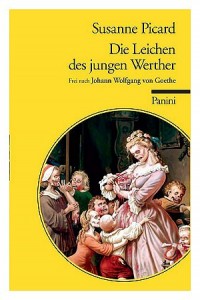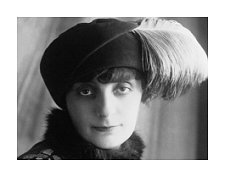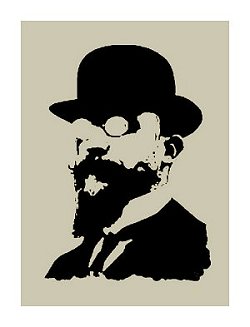Fleurs du Mal Magazine



The Sorrows of Young Werther (50) by J.W. von Goethe
NOVEMBER 8.
Charlotte has reproved me for my excesses, with so much tenderness and
goodness! I have lately been in the habit of drinking more wine than
heretofore. “Don’t do it,” she said. “Think of Charlotte!” “Think of
you!” I answered; “need you bid me do so? Think of you–I do not think
of you: you are ever before my soul! This very morning I sat on the
spot where, a few days ago, you descended from the carriage, and–” She
immediately changed the subject to prevent me from pursuing it farther.
My dear friend, my energies are all prostrated: she can do with me what
she pleases.
NOVEMBER 15.
I thank you, Wilhelm, for your cordial sympathy, for your excellent
advice; and I implore you to be quiet. Leave me to my sufferings. In
spite of my wretchedness, I have still strength enough for endurance.
I revere religion–you know I do. I feel that it can impart strength
to the feeble and comfort to the afflicted, but does it affect all men
equally? Consider this vast universe: you will see thousands for whom it
has never existed, thousands for whom it will never exist, whether it be
preached to them, or not; and must it, then, necessarily exist for me?
Does not the Son of God himself say that they are his whom the Father
has given to him? Have I been given to him? What if the Father will
retain me for himself, as my heart sometimes suggests? I pray you, do
not misinterpret this. Do not extract derision from my harmless words. I
pour out my whole soul before you. Silence were otherwise preferable to
me, but I need not shrink from a subject of which few know more than I
do myself. What is the destiny of man, but to fill up the measure of
his sufferings, and to drink his allotted cup of bitterness? And if that
same cup proved bitter to the God of heaven, under a human form, why
should I affect a foolish pride, and call it sweet? Why should I be
ashamed of shrinking at that fearful moment, when my whole being will
tremble between existence and annihilation, when a remembrance of
the past, like a flash of lightning, will illuminate the dark gulf of
futurity, when everything shall dissolve around me, and the whole world
vanish away? Is not this the voice of a creature oppressed beyond all
resource, self-deficient, about to plunge into inevitable destruction,
and groaning deeply at its inadequate strength, “My God! my God! why
hast thou forsaken me?” And should I feel ashamed to utter the same
expression? Should I not shudder at a prospect which had its fears, even
for him who folds up the heavens like a garment?
The Sorrows of Young Werther (Die Leiden des jungen Werther) by J.W. von Goethe. Translated by R.D. Boylan.
To be continued
fleursdumal.nl magazine

More in: -Die Leiden des jungen Werther, Goethe, Johann Wolfgang von

Anna de Noailles
(1876-1933)
La nuit, lorsque je dors
La nuit, lorsque je dors et qu’un ciel inutile
Arrondit sur le monde une vaine beauté,
Quand les hautes maisons obscures de la ville
Ont la paix des tombeaux d’où le souffle est ôté,
Il n’est plus, morts dissous, d’inique différence
Entre mon front sans âme et vos corps abolis,
Et la même suprême et morne tolérance
Apparente au néant le silence des lits !
Anna de Noailles poetry
fleursdumal.nl magazine
More in: Archive M-N, Noailles, Anna de

Erik Satie
(1866 – 1925)
La Pêche
Murmures de l’eau dans un lit de rivière.
Venue d’un poisson
d’un autre
de deux autres.
« Qu’y a-t-il ? »
« C’est un pêcheur, un pauvre pêcheur. »
« Merci. »
Chacun retourne chez soi, même le pêcheur.
Murmures de l’eau dans un lit de rivière.
14 mars 1914
Erik Satie: La Pêche
fleursdumal.nl magazine
More in: Archive S-T, MUSIC, Satie, Erik
Eugène Marais
(1871–1936)
Die Naaistertjie
Sjuut! Sjuut! Loop nou sag op die tone,
en loer deur die steier van die hoogrankbone.
Maak g’n geluid, hou die asem in,
en kyk net mooi waar die kweek begin.
Wat sien jy daar? ‘n Fee so fyn
dat die son haar lyfie met goud deurskyn.
Sy het ‘n blaar gepluk met die kleur van wyn,
en sy naai haar ‘n rokkie met spinnerak fyn.
Sjuut! Sjuut! Kom maar weg deur die takkies dik,
ons moet die ou Kleintjie tog nie verskrik!
Eugène Marais poetry
fleursdumal.nl magazine
More in: Archive M-N, Eugène Marais, Marais, Eugène
Thank you for reading Fleurs du Mal - magazine for art & literature